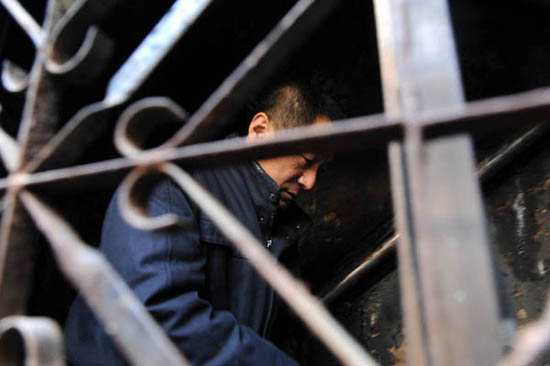
 |
| A staff member inspects the fire accident site in Lankao County, central China's Henan Province, Jan. 4, 2013. A spokesman for the Lankao county government said the fire, which broke out around 8:30 a.m., was contained within two hours. Four children died at the scene of the fire, while another three perished on their way to a local hospital. The house is apparently a private orphanage, as local residents said a woman named Yuan Lihai has used the home to shelter orphans and abandoned children. (Xinhua/Zhu Xiang) |
Believing that Yuan's heart was in the right place and that her story was a touching one, media failed to distinguish where great maternal love ends and where the law begins.
According to China's Adoption Law, adoptive parents should be "capable of raising and educating the adopted." But the vague article is not further elaborated upon or enforced by specific measures such as an established system to evaluate potential adoptive parents.
When Yuan insisted she could single-handedly care for the 34 children simply through hard work, there was no effective way to assess whether this could be true.
On Friday, the same day the fire occurred, Liu Yunshan, a member of the Standing Committee of the Political Bureau of the Central Committee of the Communist Party of China, told a meeting in Beijing, "Problems are the voice of the times."
Problems like unregistered welfare homes across the country require acknowledgement and action, not the blind eye of authorities and the public.
 |














 Temperatures recorded since the end of November have marked the lowest to hit China in 28 years
Temperatures recorded since the end of November have marked the lowest to hit China in 28 years


![]()
